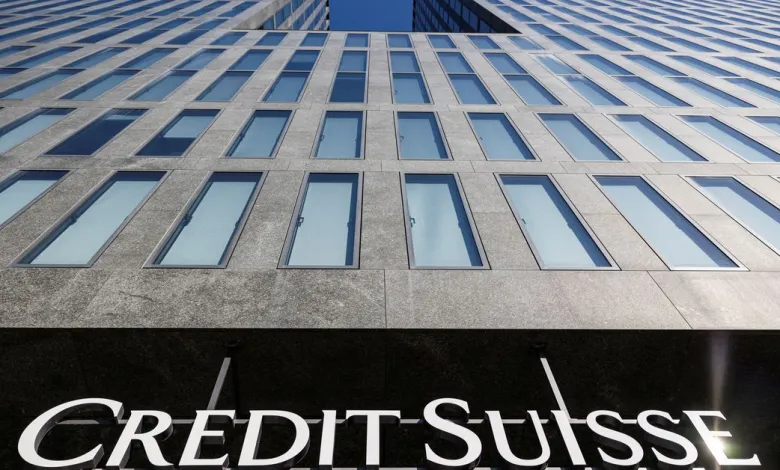The banking sector’s turmoil has not dampened demand for equities, with the MSCI World Equity Index up 7% this year.
Stocks have been supported by hopes that the Federal Reserve and others will soon end the most aggressive cycle of interest rate hikes in decades, despite the failure of two US lenders and Credit Suisse’s shotgun merger with UBS.
However, bad news for global stocks is accumulating beneath the surface.
Customers have beaten deposits out of US regional banks, and the Swiss government’s surprise cancellation of $17 billion in Credit Suisse bonds has shook a key market for European bank financing.
According to analysts, this is undermining the sector’s ability to lend money to businesses. According to central bank surveys.
Banks in the United States and Europe are already tightening lending standards, which has historically been associated with poor stock market performance.
Companies pay more for borrowing as funding becomes tighter, reducing profits and stock prices.
“Loading tightening standards are typically associated with recessions, and the stock market falls during recessions,” said Jason Da Silva, senior research analyst at London bank Arbuthnot Latham. “That’s not a promising sign.”
The credit crunch predicts poor stock market returns.
Banks in the United States and Europe are already tightening lending standards, which has historically been associated with poor stock market performance.
So far in 2023, technology stocks have dominated stock market gains, an industry that may not be immune to a recession.
The largest sub-index of the MSCI World (.dMIWO0IT00PUS) is up 20% this year; other major sector components such as banks (.dMIWO0BK00PUS), healthcare (.dMIWO0HC00GUS), and energy (.dMIWO0EN00PUS) are flat or lower.
The S&P 500 index in the United States rose 7% (.SPX) in the first quarter, a gain it has maintained since. According to Citi, seven mega-cap tech stocks accounted for 92% of the S&P 500’s gain in the first quarter.
According to Stuart Kaiser, the bank’s head of US equity trading strategy, institutional investors see large tech companies, which generally have strong balance sheets and low debt, as a hedge against a credit crunch.





